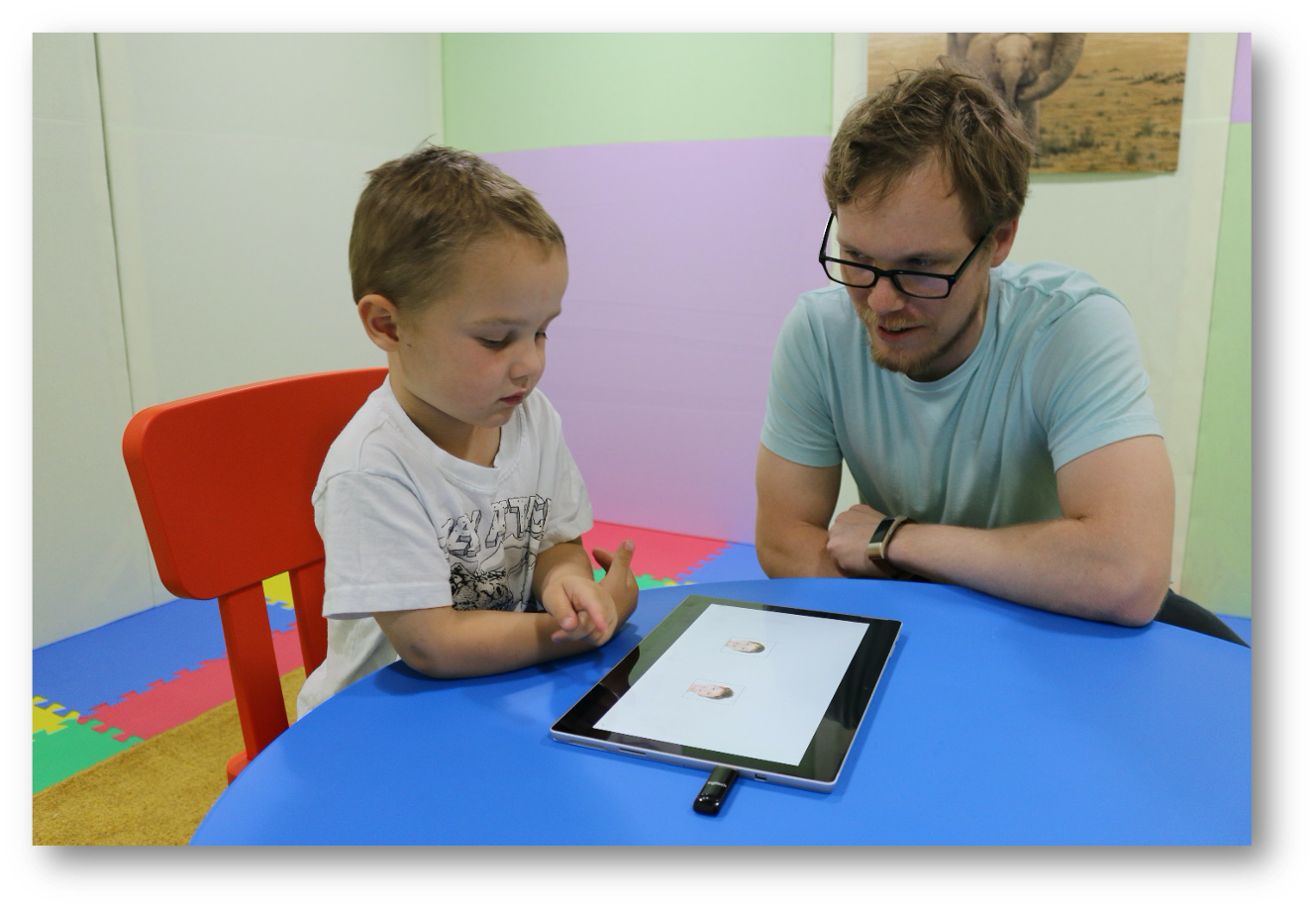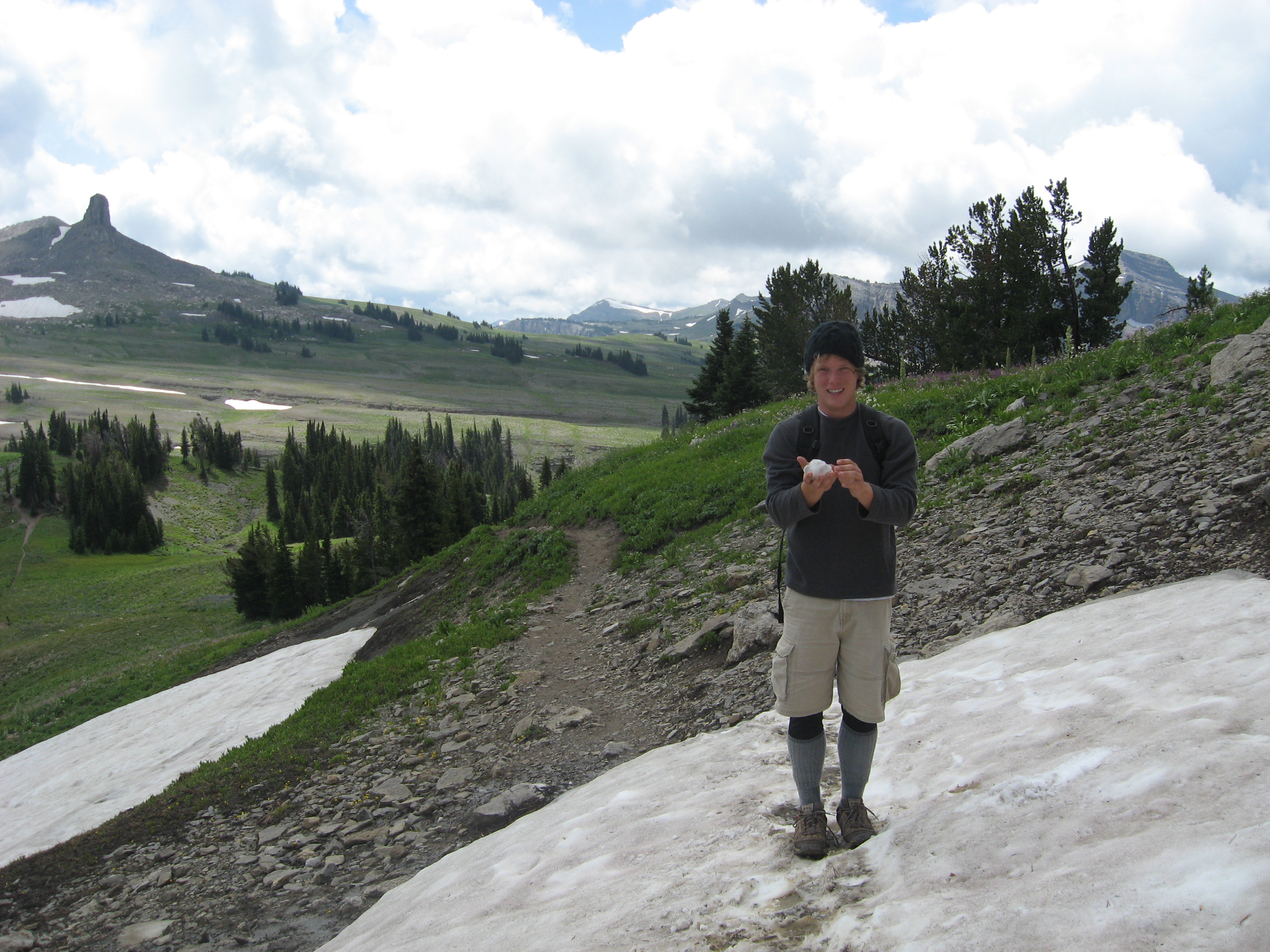Thomas St. Pierre
I received my PhD in Linguistics and Cognitive Science at the University at Buffalo (UB), and completed a postdoc in Elizabeth Johnson's Child Language and Speech Studies Lab. I've taught Linguistics and German for the UB Linguistics department, ESL courses in the Intensive English Institute at Ball State University and the American Language Program at Columbia University, and Psychology courses at the University of Toronto Mississauga and the University of Waterloo.
Currently I am an Assistant Professor in the Department of Languages, Literature, and Communication at Utrecht University. Click here to see my current website

Research
Summary
We encounter language with highly variable surface forms all the time, be it from the imprecise productions of a toddler, the synthesized speech of Alexa, or the error-filled utterances of a speaker newly acquiring a second language. Broadly speaking, my research looks at how children navigate this variability as they acquire the linguistic structure of their first language(s). I investigate how children learn/represent language variability and make use of it to guide language processing, draw inferences about people they encounter, and index their identity.
Learning & representing variability: For my dissertation (conducted with adults), I examined whether listeners can learn (and come to predict) consistent lexical (e.g., calling a set of headphones 'speakers') and syntactic (e.g., 'Where *is the jeans?') errors in L2 speech, and to what extent this learning generalizes to multiple speakers. I am currently extending this research to young children, investigating their abilities to learn consistent errors in preposition use. In work with older children, I am looking at when children begin to associate particular lexical items with particular regional accents (e.g., can children learn to predict a British-accented speaker will say 'chips' while a North-American-accented speaker will say 'French fries'?).

Making social inferences from variability: Children learn to make inferences about speakers based on characteristics in their speech. So far, my research has primarily focused on children's evaluations of L2 speakers of English - including how much children trust and want to be friends with L2 speakers - and factors that influences those evaluations. I am further interested in the malleability of children’s language attitudes, both in experimental and classroom settings.
Indexing identity & social relationships via alignment: I'm also interested in how children vary their own language in order to index their identity and relationships. I investigate children's phonetic alignment patterns to their mothers across development, and how it is influenced by children's gender. Additionally, I look at how children’s linguistic alignment behaviour is modulated by group membership, examining whether Canadian children are more likely to linguistically align to in-group members compared to out-group members along several linguistic dimensions, including lexical (e.g., 'toque' vs. 'hat'), phonetic (pa-JAH-mas vs. pa-JAM-as) and syntactic ('Mom gave me a lollipop' vs. 'Mom gave a lollipop to me'), using both arbitrary categories (e.g., red or green team) and pre-existing categories (e.g., girl/boy, child/adult).

Publications
White, K. S., St. Pierre, T., & Johnson, E. K. (accepted). In support of varying approaches to the study of variation. Language Learning and Development.
St. Pierre, T., White, K. S., & Johnson, E. K. (2023). Who's running our experiments? The influence of experimenter identity in the marshmallow task. Cognitive Development. https://doi.org/10.1016/j.cogdev.2022.101271
St. Pierre, T., White, K. S., & Johnson, E. K. (2022). Experimenter identity: An invisible, lurking variable in developmental research. Infant and Child Development. https://doi.org/10.1002/icd.2357
St. Pierre, T., & Koenig, J.-P. (2022). When one speaker's broccoli is another speaker's cauliflower: The real-time processing of multiple speaker vocabularies. Language, Cognition and Neuroscience. https://doi.org/10.1080/23273798.2022.2058033
St. Pierre, T., Cooper, A., & Johnson, E. K. (2021). Cross-generational phonetic alignment between mothers and their children. Language Learning and Development. https://doi.org/10.1080/15475441.2021.1979401
St. Pierre, T., & Johnson, E. K. (2021). Looking for wugs in all the right places: Children's learning of novel words using prepositions. Cognitive Science, e13028. https://doi.org/10.1111/cogs.13028
St. Pierre, T., & Johnson, E. K. (2020). The development of accent-based friendship preferences: Age and language exposure matter. Proceedings of the 42nd Annual Meeting of the Cognitive Science Society, Toronto, ON. https://cogsci.mindmodeling.org/2020/papers/0639/0639.pdf
Interests
I like hiking and I like taking pictures. Here are some pictures taken while hiking.





